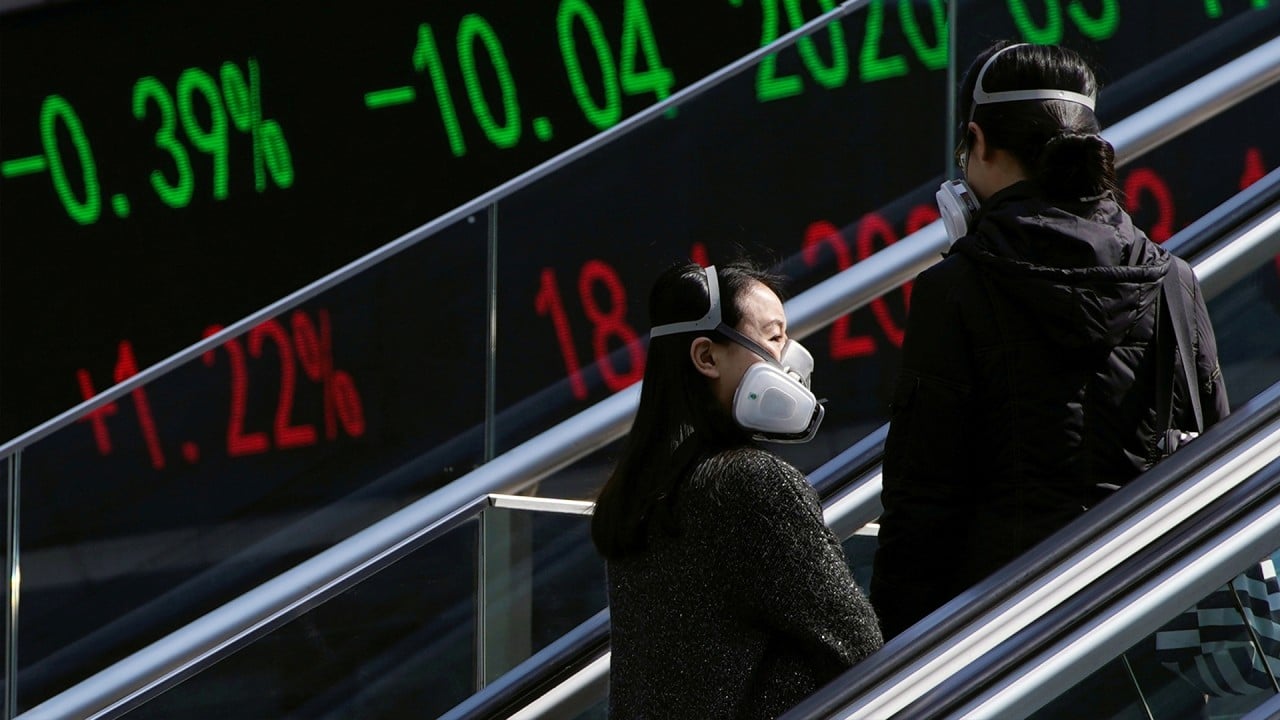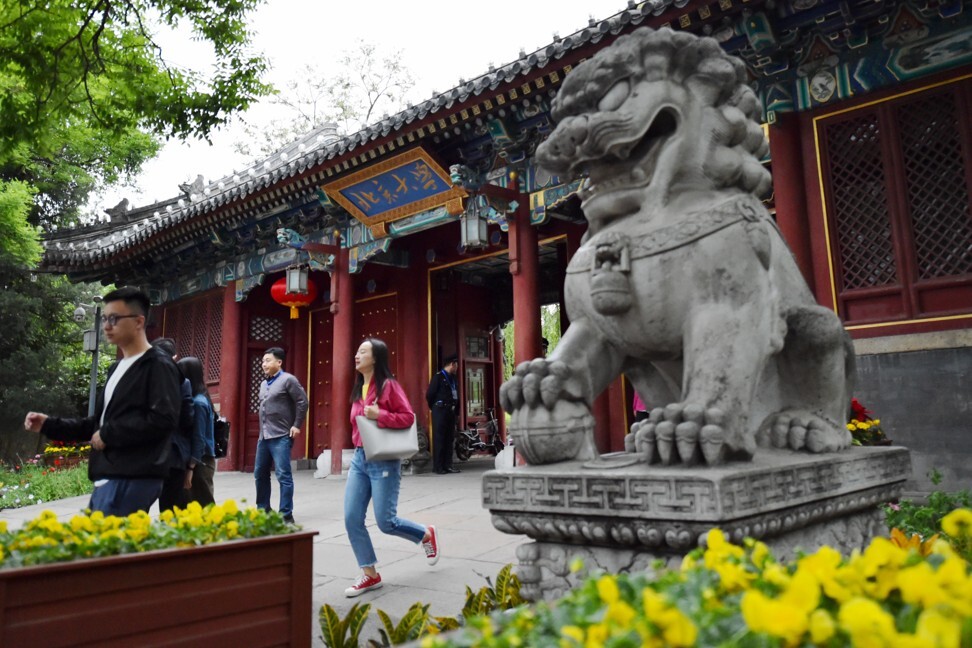
Bankruptcy case casts doubt on US$96 billion of offshore Chinese bonds claims, puts pressure on financial products skirting capital controls
- Peking University Founder Group restructuring casts doubt over validity of keepwell deeds
- Around 16 per cent, or US$96 billion, of outstanding Chinese offshore bonds contain keepwell provisions: Redd
The business arm of China’s most prestigious university met its creditors on April 30, and the outcome has shaken investors’ faith in widely used contracts for Chinese offshore bonds.
This decision impacts bondholders of about 16 per cent, or US$96 billion, of outstanding offshore bonds issued by Chinese companies, according to Redd, a market data provider. More than US$12 billion of debt rated by credit rating agency Moody’s uses keepwell deeds.
“This is the first time keepwell deeds have been tested in court. The administrator could set an important precedent,” said Renee Lam, a credit officer researching companies across the Asia-Pacific region at ratings agency Fitch.
With more companies coming under stress as the global economy tumbles into its worst downturn since the 1930s’ Great Depression, legal fights and restructurings will test other grey areas of investments that have mushroomed during the world’s longest bull market since the 2007-08 global financial crisis.
“When the market is good, investors don’t worry. But when the market is stressed, they take another look at these structures,” said Soo Cheon Lee, chief investment officer at credit-focused banking and asset management group SC Lowy.
Chinese borrowers started using keepwell deeds to skirt the niceties of Chinese foreign investment restrictions and capital controls around 2012, mostly because incorporating them in contracts was usually a quicker and more reliable route than requesting a guarantee from China’s State Administration of Foreign Exchange (SAFE).

03:03
China’s first-quarter GDP shrinks for the first time since 1976 as coronavirus cripples economy
Some of China’s best-known borrowers have used keepwell deeds as a signal of their willingness to provide support for affiliates, including oil and gas giant Sinopec, property developer Vanke and conglomerate Dalian Wanda. However, these deeds are no guarantee that financial support will come in a pinch.
The administrator’s decision to not immediately greenlight keepwell deeds is another blow for investors already getting no quarter from some stretched borrowers, such as conglomerate HNA, which convened a meeting with its yuan-denominated bond investors at such short notice it gave them little time to prepare questions.
The Peking University Founder Group’s bankruptcy case could also knock confidence in China’s corporate governance, even as Beijing woos foreign investors to its onshore bond market, the world’s second-largest and worth more than 100 trillion yuan (US$14.3 trillion).
“The issue does highlight that China often presents investors with hidden risk,” said Brock Silvers, at Hong Kong-based private credit firm Adamas Asset Management.
Other legally grey areas and informal investment practices that have proliferated during the go-go years include variable interest entities, or VIEs.
In 2011, Chinese regulators put pressure on VIE corporate structures, that are used by Chinese companies to raise equity overseas, but never closed the loophole entirely. “The VIE structure commonly used by Chinese companies in ex-China IPOs is also legally uncertain. China could effectively repeal those structures at any time and leave offshore investors with worthless shares,” Silvers said.
A test looms for these structures’ viability.
Entirely legitimate areas of investment that are popular during good times, but risky have also come under pressure. Mezzanine finance for leveraged buyouts and perpetual bonds, which have an unpredictable redemption date, has in some cases fallen in value in recent months.
Offshore bond issuance is still lively. Last year was a record year for Chinese offshore bonds, and for Chinese offshore issuance in G3 currencies, according to data provider Refinitiv.
To be sure, the administrator of Peking University Founder Group could ultimately decide to accept the creditors’ claims. So far, market disruption has been minimal, particularly for state-owned enterprises that have used keepwell deeds, as investors assume support for their offshore entities will continue to be forthcoming.
Ratings agencies pointed out that they take other factors into account when rating a bond with a keepwell clause, including the parent’s economic, financial and reputational motivation to provide support. Moody’s said it had rated nearly all offshore debt issuers using keepwell deeds one notch below the parent company.
Also, the bonds are not valueless without the keepwell deeds, but they will be worth less than before the case. “The outcome of the case may affect how we assess ratings for bonds that incorporate it,” Fitch said.
As a last resort, investors could put up a fight.
“Offshore investors holding bonds with keepwell structures could still bring a lawsuit in Hong Kong courts and argue that they should be treated equally with other bondholders,” said Hao Zhou, a Hong Kong-based partner at law firm King & Wood Mallesons who specialises in advising on bonds. “The PRC court might accept the judgment as a matter of evidence.”

Borrowers commonly used keepwell structures before SAFE became more willing to allow onshore companies to provide guarantees for their offshore subsidiaries’ debt. Keepwells are less common nowadays, but registration with SAFE within 15 business days after the closing of a bond does not get automatic approval.
“Getting SAFE approval is not easy, so companies have come up with creative structures during the bull market to reassure investors,” said SC Lowy’s Lee.
Chinese oil firm MIE defaults on US$248 million bond as asset value slumps
Keepwell deeds are used by Chinese companies to support offshore units issuing debt. Unlike guarantee structures, a keepwell structure requires no onshore regulatory approval, so minimises delays in raising capital.
“Some issuers will continue to use keepwell structures,” said King & Wood Mallesons’ Hao, if the administrator ultimately recognises the claims, as they may be technically prohibited from making a guarantee to an offshore entity by existing loan or bond contracts, and the parent might not be willing to offer a guarantee as it would be reflected as a liability in their financial statements. King & Wood Mallesons tops the league table for advising issuers on bond issues in Asia.
“The outcome of this case could impact secondary market pricing and future bond issues,” said Hao. “At the moment, institutional investors are riding this out.”
In the small print, there are other key differences between keepwell documents. In some cases, an onshore parent agrees to purchase equity or assets in its offshore subsidiary as a means of transferring funds offshore, with the proceeds going to service interest and principal payments on the bond. This pledge would be more meaningful than a mere letter of comfort to investors.
Companies with bonds using keepwell clauses include Sinopec affiliate Sinopec Century Bright Capital Investment, Wanda Commercial Properties (HK), which is supported by Dalian Wanda Commercial Properties, and Vanke Real Estate (Hong Kong), which is backed by China Vanke.
In the meantime, as Peking University Founder Group winds its way through the bankruptcy process, investors will have to wait for a final decision on the legitimacy of the keepwell deeds.
“A final decision could take weeks or even months,” said Fitch’s Lam.

